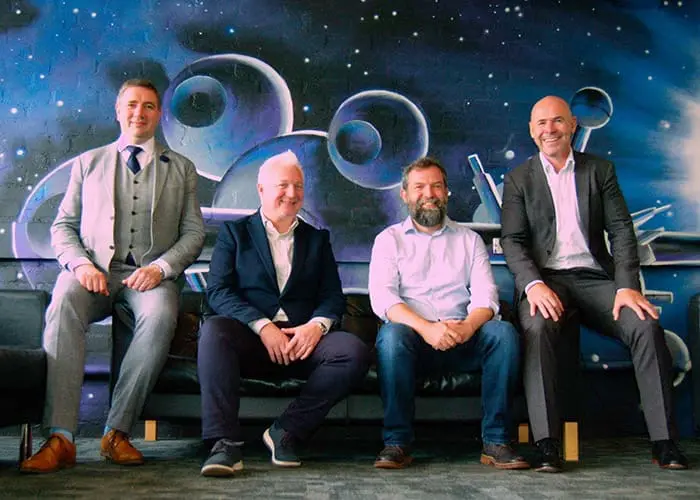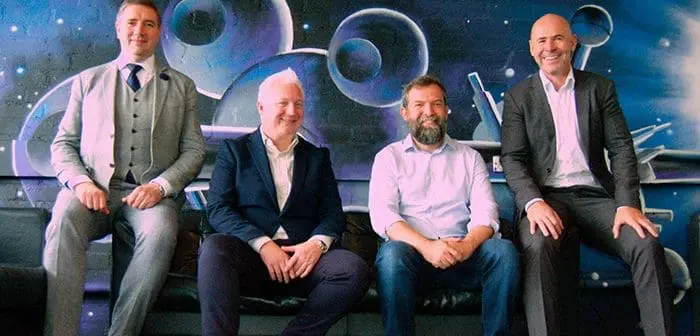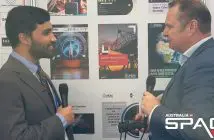
The West of Scotland Space Cluster, the newest addition to the UK’s thriving ecosystem of regional space clusters, has launched this week ahead of Space-Comm Expo Scotland at SEC Glasgow on September 11 and 12, 2024, one of the year’s biggest UK space industry events.
The region is a key hub in the Scottish space sector, operating at the forefront of a European revolution in spacecraft systems, payload manufacture, launch, and data analysis activity. Space companies such as AAC Clyde Space and Spire Global have led the way, building more satellites in Glasgow than any other city in Europe, with other players, such as Craft Prospect and Alba Orbital, introducing further innovation in the global small satellites market.
Aligned with the regional space clusters operating across the UK, the West of Scotland Space Clusters incorporates industry, universities and colleges, as well as economic development and support organisations, aiming to capitalise and expand on existing regional strengths in space technologies. The region’s capability extends from small satellite design, manufacture and mission capability and advanced space data-driven services to leading-edge research and development in fields such as quantum, photonics, communications and AI. It is widely acknowledged that the growth of the West of Scotland Space Cluster companies will be critical in helping Scotland achieve its ambition of securing GBP4 billion of the global space market by 2030.
Space entrepreneur Craig Clark, the founder of AAC Clyde Space and a Professor of Practice in the University of Strathclyde’s space cluster, said that the new cluster would help drive regional growth by combining pioneering research, industry innovation and manufacturing facilities to provide the foundation for Scotland’s emerging end-to-end capability in the European small satellite value chain.
“With SaxaVord Spaceport now operating as the first fully licensed vertical launch Spaceport in Europe, the West of Scotland has a pivotal role to play in the delivery of the country’s end-to-end capability and helping to attract international companies to set up operations here as we have recently seen with the South African CubeSat imaging company, Simera Sense,” he said.
“From a standing start in 2005, Scotland now has one of the fastest-growing space sectors in the world, fuelled by global excellence in space-related research and a long history of innovation and entrepreneurship in engineering. The aim of the West of Scotland Space Cluster is to grease the wheels of the continued growth of the sector in the region and help make Scotland a leading global space player.”
John Ward, Senior Director of Research and Development at Spire Global, which designs and builds the world’s largest multipurpose satellite constellation in Glasgow, said that the new cluster would serve as a platform for greater connectivity and collaboration between the region’s key players.
“Spire Global has manufactured over 175 satellites right here in Glasgow, where the majority of our R&D efforts take place,” Ward said. “This new space cluster will enhance collaboration and connectivity among regional players, accelerating innovation and creating a more integrated supply chain. By fostering this ecosystem, we can unlock new opportunities for growth and cement the West of Scotland as a leading hub in the global space industry.”
Andrew Strain, Chief Technology Officer at AAC Clyde Space, added that the cluster’s new advisory group would be focused on actions that drive growth across a region which stretches all the way to the Prestwick, home to Scotland’s largest aerospace hub.
“The West of Scotland has amassed an incredible amount of capability in the space industry over the past two decades, particularly in small satellite design and manufacturing. This year marks the tenth anniversary of the launch of Scotland’s first satellite UKube-1, built by Clyde Space Ltd, now part of AAC Clyde Space,” Strain said.
“In the following decade, Scotland has gone from never having launched a satellite to building more than anywhere else in Europe. Satellites and systems designed and built here account for hundreds of years of accumulated on-orbit heritage. Very few places in the world can claim that. Through the West of Scotland Space Cluster, we have the opportunity to maintain and grow our admirable position in this innovative section of the space industry.”
“The UK Space Agency strongly supports and is investing in the growth of the Scottish Space Economy,” added Antonia Yendell, Head of the Space Ecosystem team at the UK Space Agency. “The UK Space Ecosystem is a competitive advantage for the UK Space Sector, and Scotland plays a critical role in our thriving and interconnected cluster network, developing our national capabilities and driving economic growth.”





